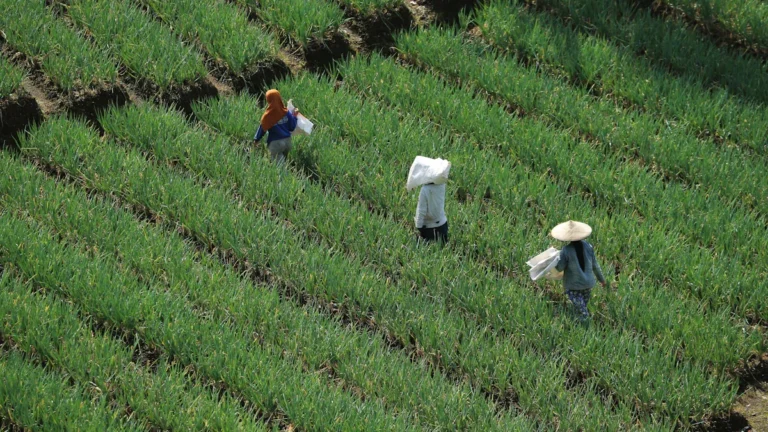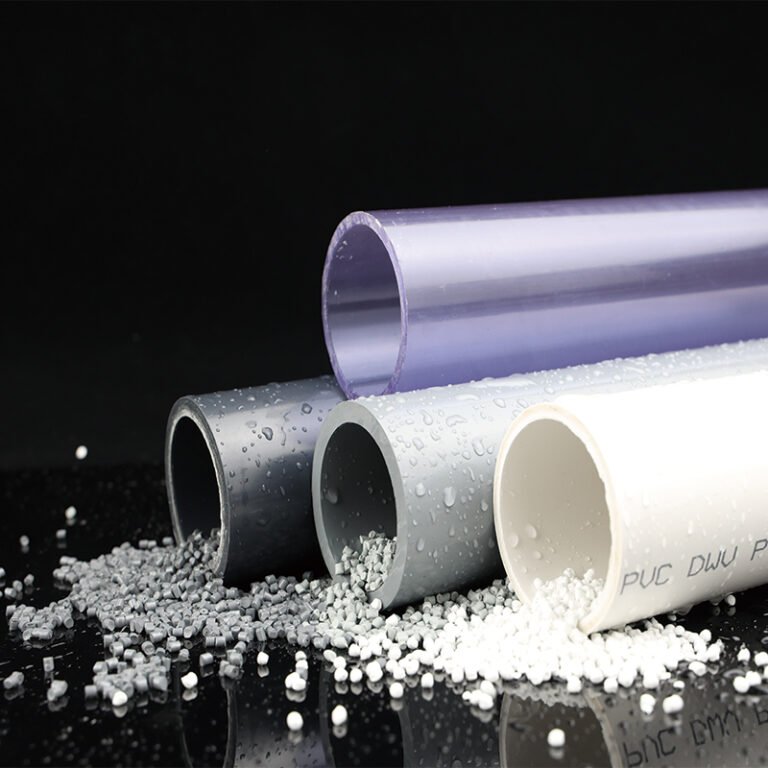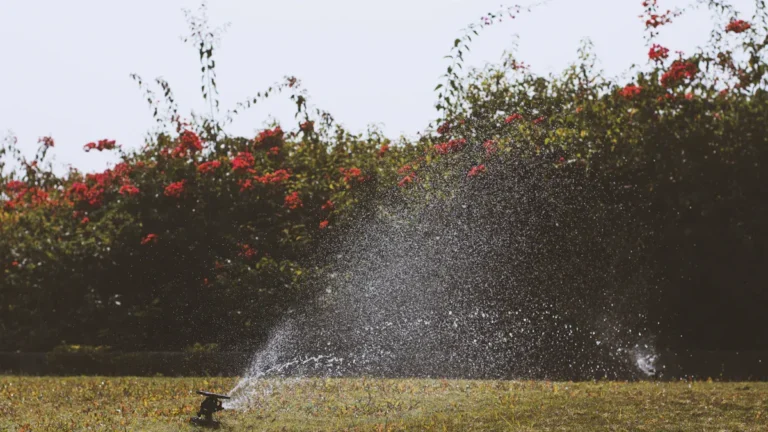Where to buy pvc pipe
Find out where to buy pvc pipe, including hardware stores, online retailers, and local suppliers. Get tips on choosing the right type and size for your needs.
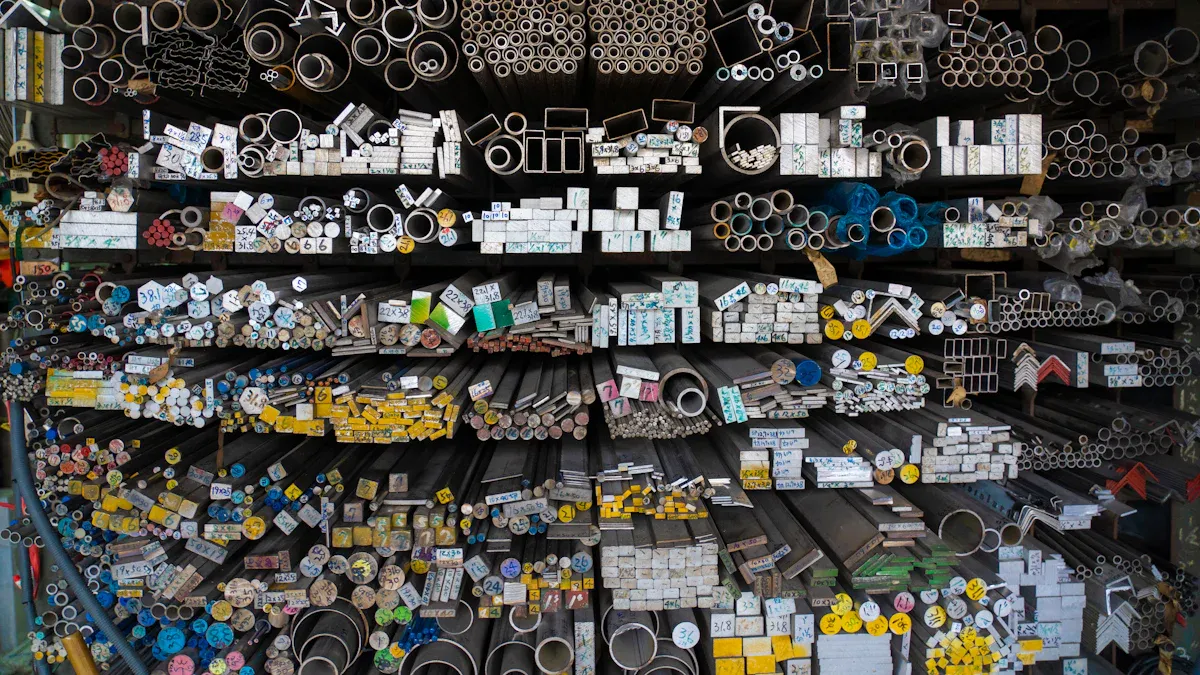
You can pick up PVC pipe at big-box hardware stores, shop online with retailers like Dianhuai, visit local plumbing suppliers, or check out specialty shops. Before you buy, make sure you know the exact type and size you need. Choosing wrong can mean leaks or even pipe failure. Here’s a quick look at why these details matter:
Specification Type | Details / Impact |
|---|---|
SCH 40 is common, SCH 80 is thicker for higher pressure | |
Pressure Ratings (PSI) | Ranges from 125 PSI to 315 PSI |
Nominal Pipe Size | 1″ pipe fits 1″ fittings—misfits cause leaks |
Threaded Fittings Effect | Pressure rating drops 50% with threads |
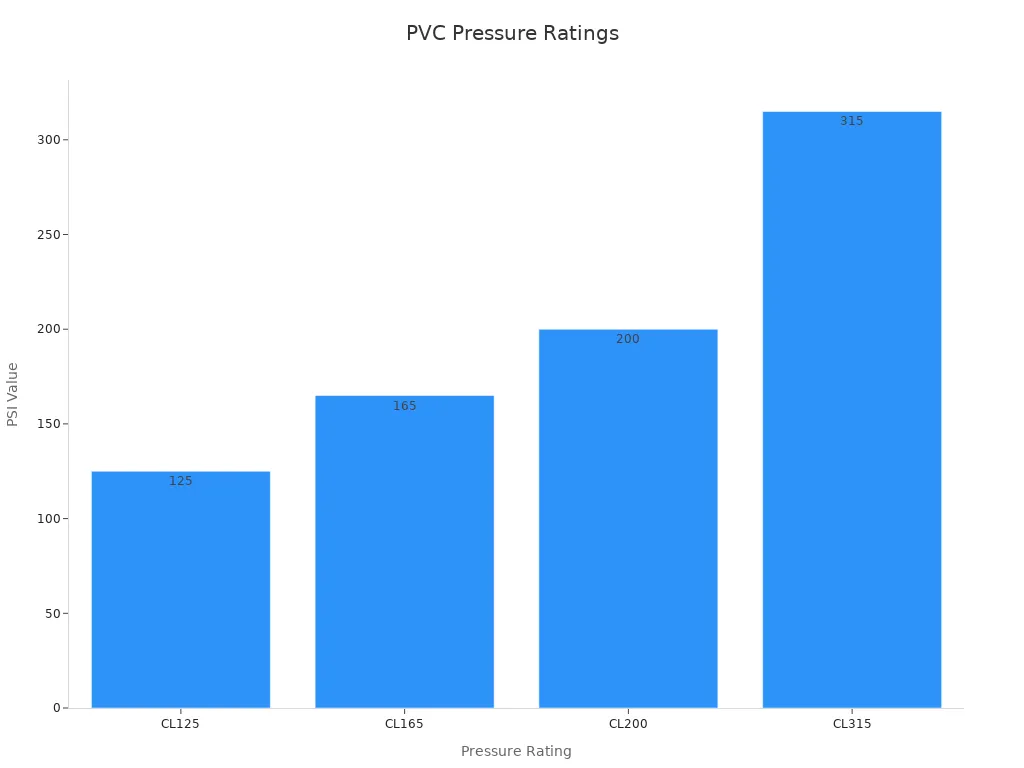
If you feel unsure about which pipe to pick, you should always consult a pro before buying.
Key Takeaways
You can buy PVC pipe at big hardware stores, online shops, local suppliers, or specialty stores depending on your needs and budget.
Always know the exact pipe type and size before buying to avoid leaks or failures; bring a sample or photo to help match it.
Compare prices and check for bulk discounts, but watch for extra shipping fees that can raise costs.
Local suppliers offer expert advice, better service, and may have better prices for large orders.
Consider eco-friendly options like recycled PVC or alternative materials to save money and help the environment.
Where to Buy PVC Pipe
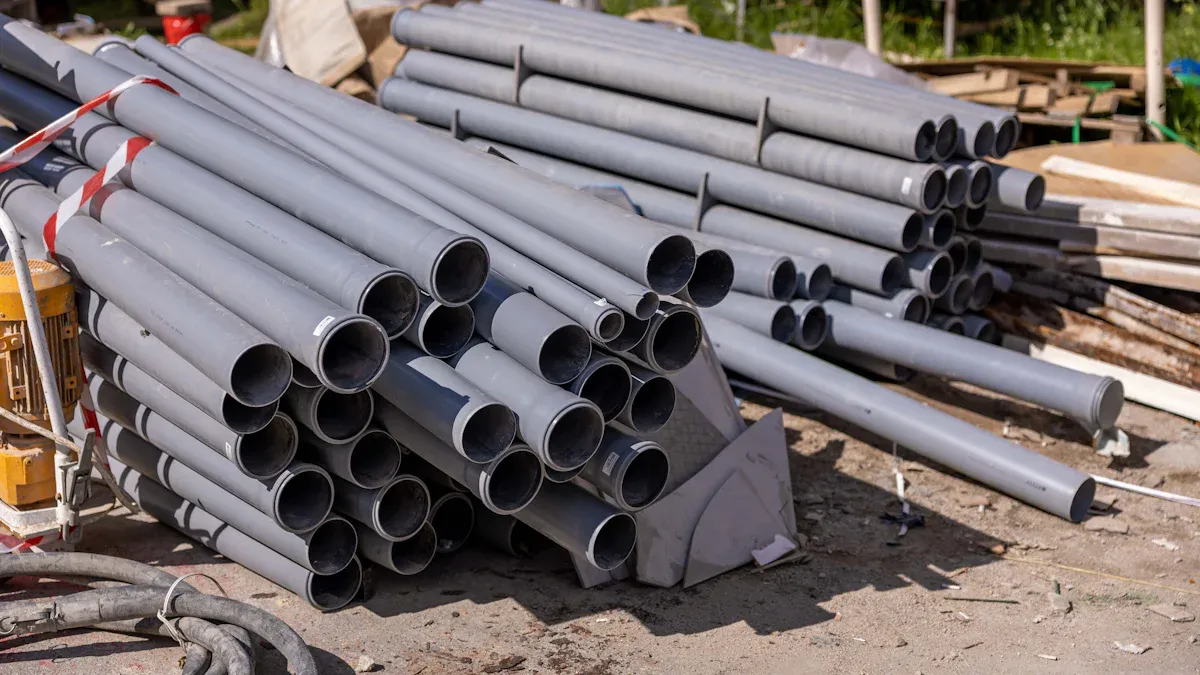
National Chains
You can find pvc pipe at most big-name hardware stores. Stores like Lowe’s, Home Depot, and Menards carry a wide range of sizes and types. These chains usually keep popular options like Schedule 40 and Schedule 80 in stock. You can walk in, check the quality yourself, and get help from staff if you have questions. Many locations offer online ordering with in-store pickup, which saves you time. If you need a few pieces for a home project, these stores make shopping easy and fast.
Tip: Bring a sample or a photo of the pipe you need. This helps you match the size and type quickly.
Online Stores
Shopping online opens up even more choices. Websites like Amazon, eBay, and Alibaba let you compare prices and read reviews from other buyers. You can also find brands like DIANHUAI, which offer bulk options and unique sizes that local stores might not carry. Some online stores ship directly to your door, which is great if you need a lot of pvc pipe or live far from a hardware store. Facebook Marketplace is another place to look for deals, especially if you want to buy used or leftover pipe from local sellers.
Online stores often have:
Bulk discounts for large orders
Hard-to-find sizes and fittings
Shipping options for heavy or long items
If you order online, double-check the product details and seller ratings. Make sure you get the right type and length for your project.
Local Suppliers
Local plumbing supply stores can be a hidden gem. These shops often serve contractors, but they welcome homeowners too. You might find better prices on pvc pipe, especially if you buy in bulk. Local suppliers know the area’s building codes and can help you pick the right materials. They may also offer delivery for large orders.
Here’s a look at how local suppliers play a key role in different regions:
Region/Country | Key Sales Data / Market Share | Supporting Insight |
|---|---|---|
Asia Pacific | 52% revenue share by 2037; India imported 3.2 million metric tons PVC in 2022 | Strong local demand and supply from nearby regions support local suppliers through industrial growth |
North America | Over 23% revenue share by 2037; U.S. imports surged to 571.1K metric tons in 2024 | Infrastructure projects drive demand, and local suppliers help meet regional needs despite import competition |
Canada | Exports USD 96.52 million and imports USD 116.2 million in plastic pipes (2024) | Active trade shows local suppliers balance supply and demand |
U.S. Imports by Country (Jan-June 2024) | Colombia: 21.4 million lbs; Dominican Republic: 7.68 million lbs; China: 6.84 million lbs | Import sources impact the market, but local suppliers remain important |
Local suppliers adapt quickly to changes in demand and often provide better service than big chains. If you want advice or need a special order, these shops are worth a visit.
Specialty Sources
Sometimes your project needs more than standard pvc pipe. Specialty suppliers like Sprinkler Warehouse, FlexPVC, White Cap, Hide-A-Hose, and Ninjacart focus on unique or advanced products. These companies offer pipes with features like UV resistance, anti-bacterial coatings, or smart sensors for real-time monitoring. You can also find eco-friendly options made with recyclable materials.
Specialty suppliers stand out because they:
Offer customized solutions for specific needs
Develop pipes with advanced features (like multilayer systems or chemical resistance)
Use eco-friendly production methods
Lead the way in smart piping systems with sensors
Focus on innovation and regulatory compliance
Serve niche markets in construction, agricultura, and smart infrastructure
Mainstream stores usually compete on price and selection. Specialty suppliers, on the other hand, lead with innovation and customization. If you need something special or want the latest technology, these sources are your best bet.
PVC Pipe Buying Tips
Types and Sizes
Choosing the right type and size of pipe can make or break your project. You’ll see options like Schedule 40, CPVC, and thinwall pipes. Each type has its own strengths. For example, Agendar 40 works well for most home plumbing jobs, while CPVC handles higher temperatures and is great for hot water lines. Thinwall pipes cost less but don’t hold up under high pressure.
Here’s a quick table to help you compare:
PVC Type | Key Properties | Typical Applications | Advantages | Limitations |
|---|---|---|---|---|
PVC-U | Rigid, UV and chemical resistant | Sewage, drinking water, drainage | Affordable, durable, recyclable | Not for high temperatures |
C-PVC | Handles higher temperatures, corrosion resistant | Drinking water, fire sprinklers | Safe for hot water, flexible | Costs more than PVC-U |
Pipe size matters too. If you pick the wrong diameter or wall thickness, you might run into leaks or even pipe failure. Always check what your project needs before you buy.
Price and Bulk Options
You want to get the best deal, right? Prices for pvc pipe can change a lot depending on where you shop and how much you buy. Big-box stores often have sales on common sizes. Online shops sometimes offer bulk discounts if you need a lot of pipe. Local suppliers may give you a better price if you ask, especially for large orders.
Tip: Always compare prices and check for hidden shipping fees. Sometimes a lower sticker price means higher delivery costs.
Convenience and Service
Shopping should be easy, not stressful. Good customer service can make a huge difference. Stores that offer after-sales support, technical help, and warranties help you feel confident about your purchase. According to industry experts, customer service quality often shapes where people choose to buy their pvc pipe. Great service means you get help from start to finish, which builds trust and makes your project smoother.
Don’t forget to check for quality marks and certifications, especially if you buy online or in bulk. These show that the pipe meets safety standards and will last.
Alternatives and Eco-Friendly Options
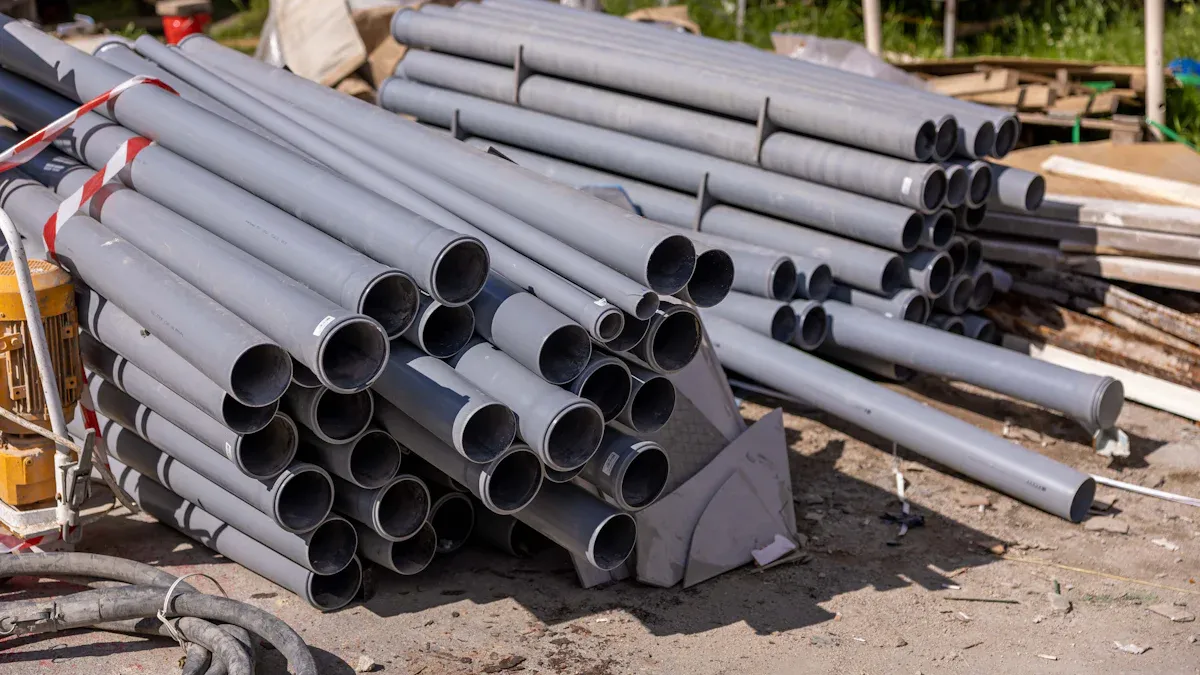
Recycled and Used PVC Pipe
You might want to save money or help the environment by choosing recycled or used pvc pipe. You can often find leftover or gently used pipe on Facebook Marketplace, local community forums, or even at construction site sales. Upcycling old pipe for garden projects, crafts, or irrigation can give materials a second life and keep them out of landfills.
Several studies show that using recycled plastics, including PVC, in construction can lower waste and reduce the need for new raw materials. Some companies now mix recycled PVC with new materials to make strong, long-lasting pipes. For example, IPEX uses both internal scrap and third-party recycled PVC to create durable products. These pipes can last over 100 years and have lower break rates than many other materials, which means less waste and fewer repairs.
Note: While recycled pvc pipe helps the planet, some experts warn about possible microplastics or chemicals leaching out. Ongoing research is working to make recycled pipes even safer for you and the environment.
You can also help by asking your local supplier if they collect and reuse old pipes. Many companies now try to recycle more PVC from construction sites.
Alternative Materials
Sometimes, pvc pipe is not the best fit for your project. You might consider other materials like galvanized steel, copper, or even bioplastic pipes. Each option has its own pros and cons.
Galvanized steel: Strong and good for high-pressure jobs, but it can rust over time and costs more to install.
Copper: Lasts a long time and resists bacteria, but it is expensive and can be tricky to work with.
Bioplastic pipes: Newer on the market, these pipes use plant-based materials and are designed to be more eco-friendly.
Governments and companies are pushing for greener options. For example, the US and Europe now invest billions in replacing old pipes with safer, more sustainable ones. Companies like JM Eagle and BASF are making recyclable and bioplastic pipes to meet this demand. You will see more eco-friendly choices as the market grows and technology improves.
If you want to make the most eco-friendly choice, ask about the pipe’s certifications and how it was made. Picking the right material can help your project last longer and protect the environment.
You have plenty of places to shop, from big hardware stores to local suppliers and specialty shops. Think about what works best for your project, your budget, and how quickly you need materials. Always double-check the type and size before you buy. If you want to help the planet, look for recycled or alternative materials.
The Schedule 80 market keeps growing, thanks to strong demand, new features, and customer feedback.
People like these pipes for their cost, easy installation, and long life.
Companies keep improving pressure resistance and eco-friendly options.
Perguntas frequentes
Where can you find the cheapest PVC pipe?
You usually get the best deals at local suppliers or online marketplaces like Facebook Marketplace. Check for bulk discounts or leftover materials. Always compare prices and watch for shipping fees.
How do you know what size PVC pipe you need?
Measure the outside diameter of your old pipe or fitting. Bring a sample or photo to the store. Staff can help you match the right size. Double-check your project’s requirements before you buy.
Can you use PVC pipe for drinking water?
Sim, but only use pipes labeled as safe for potable water. Look for NSF or UPC certification marks. These pipes meet health standards and work well for home plumbing.
What’s the difference between Schedule 40 and Schedule 80 PVC?
Feature | Agendar 40 | Agendar 80 |
|---|---|---|
Wall Thickness | Padrão | Thicker |
Pressure Rating | Lower | Higher |
Cor | White | Gray |
Agendar 80 handles more pressure and works for tougher jobs.
Is it safe to buy used PVC pipe?
Used PVC pipe can save money and reduce waste. Check for cracks, stains, or warping before you buy. Avoid pipes with unknown chemicals or heavy wear. Used pipe works best for non-drinking water projects.


